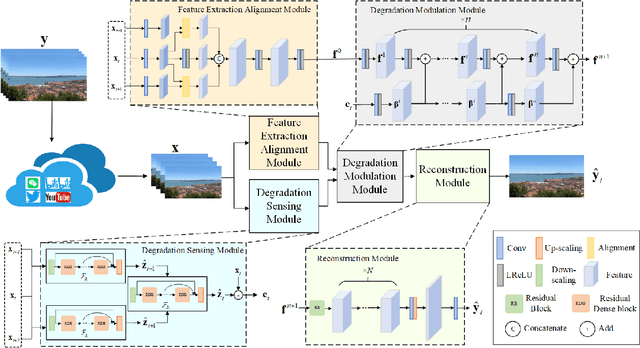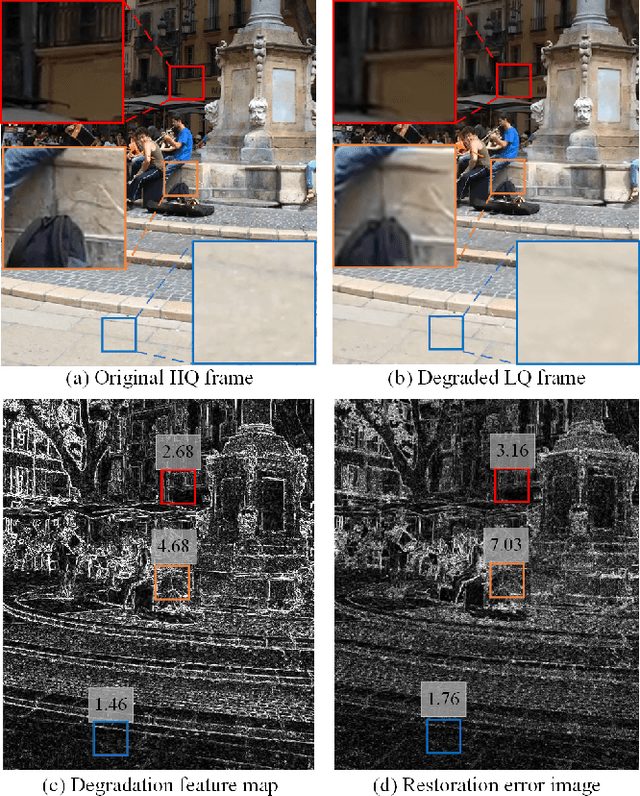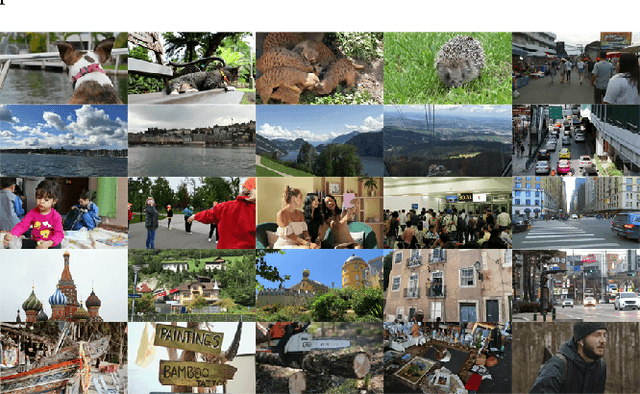Restoration of User Videos Shared on Social Media
Paper and Code
Aug 26, 2022



User videos shared on social media platforms usually suffer from degradations caused by unknown proprietary processing procedures, which means that their visual quality is poorer than that of the originals. This paper presents a new general video restoration framework for the restoration of user videos shared on social media platforms. In contrast to most deep learning-based video restoration methods that perform end-to-end mapping, where feature extraction is mostly treated as a black box, in the sense that what role a feature plays is often unknown, our new method, termed Video restOration through adapTive dEgradation Sensing (VOTES), introduces the concept of a degradation feature map (DFM) to explicitly guide the video restoration process. Specifically, for each video frame, we first adaptively estimate its DFM to extract features representing the difficulty of restoring its different regions. We then feed the DFM to a convolutional neural network (CNN) to compute hierarchical degradation features to modulate an end-to-end video restoration backbone network, such that more attention is paid explicitly to potentially more difficult to restore areas, which in turn leads to enhanced restoration performance. We will explain the design rationale of the VOTES framework and present extensive experimental results to show that the new VOTES method outperforms various state-of-the-art techniques both quantitatively and qualitatively. In addition, we contribute a large scale real-world database of user videos shared on different social media platforms. Codes and datasets are available at https://github.com/luohongming/VOTES.git
 Add to Chrome
Add to Chrome Add to Firefox
Add to Firefox Add to Edge
Add to Edge